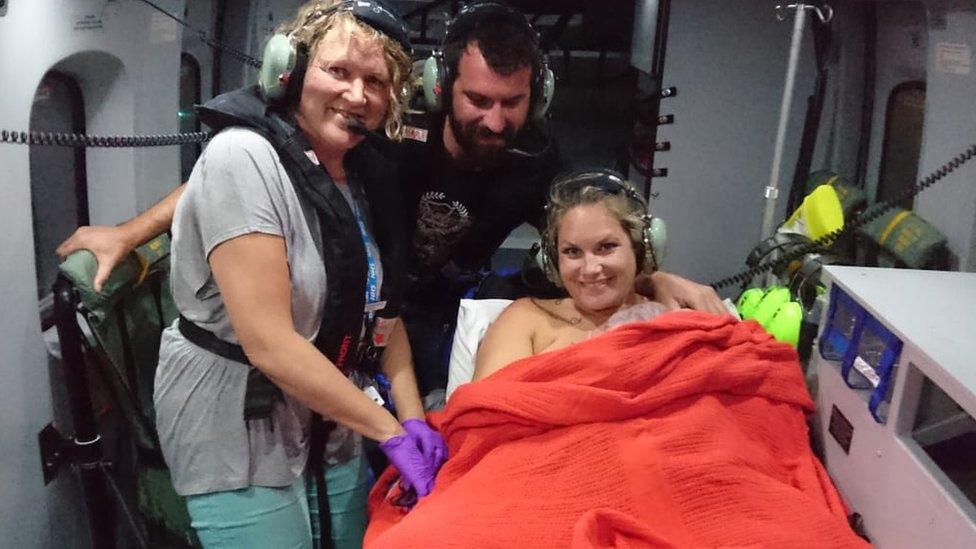Premature twins meet staff who saved their lives
- Published
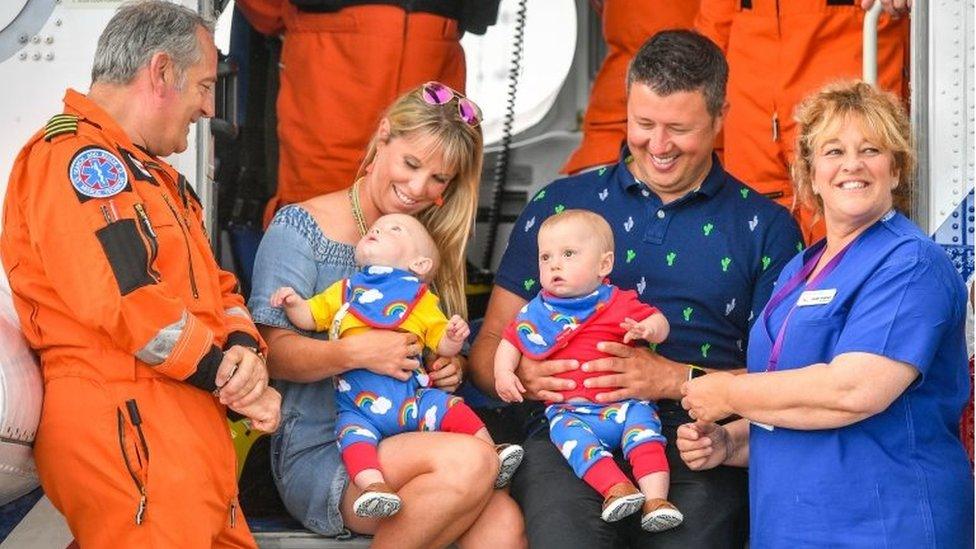
Chief crewman Ian Copley and midwife Jane Parke are reunited with the twins and their parents
The family of twins born on holiday at less than 23 weeks have returned to thank search and rescue crews, midwives and doctors who saved their lives.
Ruben and Jenson Powell became the youngest surviving pre-term twin boys born in Britain when they were born in August last year.
Their parents Jennie and Rich, from Brighton, were in Cornwall when Mrs Powell went into labour.
They were flown to Oxford where the twins were born the next day.
"It really is a story of hope and miracles," said Mrs Powell. "They defied every set of odds that they were given."
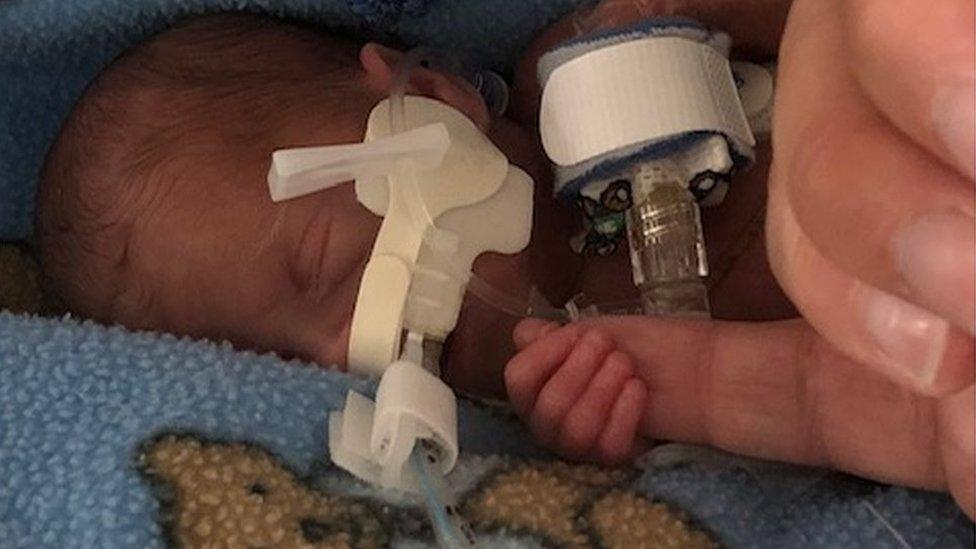
The twins weighed 535g and 590g when they were born
While on their annual holiday in Cornwall on 16 August last year, Mrs Powell went to hospital after experiencing pains.
The couple headed to Royal Cornwall Hospital in Truro where doctors decided she needed to be transferred to a specialist neo-natal unit.
The nearest available beds were in the John Radcliffe Hospital in Oxford and Mrs Powell was flown there by a Coastguard helicopter.
The twins were delivered by emergency C-section the following day at 16:20 and 16:21 BST, and were born at just 22 weeks and six days.
Weighing just 535g (18.8oz) and 590g (20.8oz), Jenson was given a 0% chance and Ruben a 20-30% chance of surviving the first 48 hours.
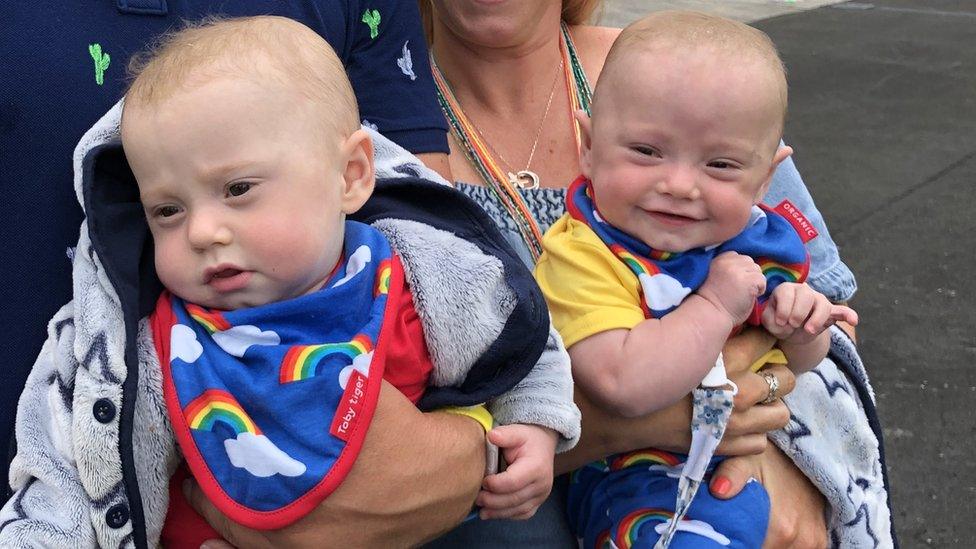
Ruben and Jenson Powell were born more than four months early
Mrs Powell described the next few days as "miraculous".
"Every decision made by the people who were looking after us ensured that our boys survived and are here today."
Captain Jorg Brunner, co-pilot Ivan Hamilton, chief crewman Ian Copley and winchman-paramedic Niall Hanson took Mrs Powell and midwife Jane Parke on the hour and 15 minute flight from Cornwall to Oxford.
It was a "lifesaving decision" that allowed staff at the Oxford hospital to "continue monitoring us when we needed it most", Mrs Powell added.
"After that day, Jane and the helicopter crew didn't have any idea about what had happened to us - that the boys had survived.
"Being able to meet them again on the anniversary is so, so wonderful."
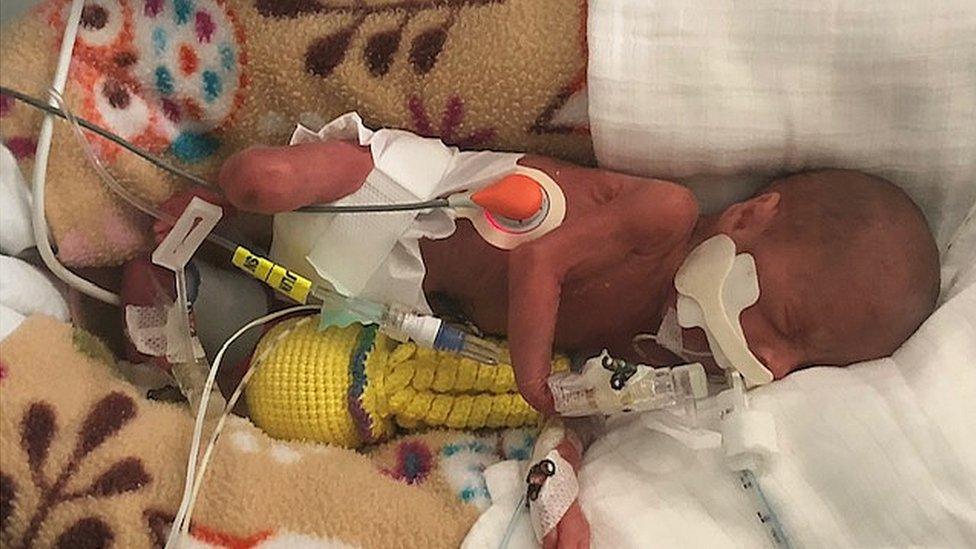
Ruben had a lifesaving operation when his intestines failed, while Jenson had weak lungs
Eight days after delivery, Ruben had a lifesaving operation when his intestines failed but battled through despite the low survival rate.
Jenson also fought off weakness in his lungs and pulled through.
"The standard of care we received was outstanding," Mrs Powell said.
The brothers are also believed to be the youngest in the country to receive a vital eye injection to cure retinopathy of prematurity - the same condition that caused musician Stevie Wonder's sight loss.
Two years earlier, Mr and Mrs Powell's son Linnie died after being born at 23 weeks as a result of complications relating to a rare infection.
"The twins' pregnancy was being closely watched as a result of what we had been through when we lost our first child," Mrs Powell said.
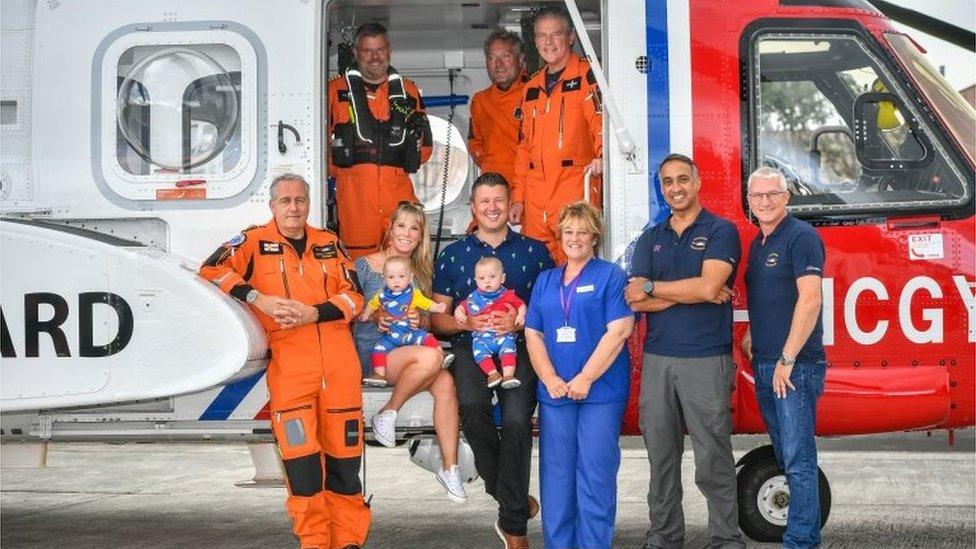
The family were reunited with coastguard helicopter crew members who helped them
Mr Powell said: "The boys had it all - infections, more than 20 blood transfusions, sepsis, pneumonia, eye injections and laser surgery, hernia reversal, you name it.
"Today, the boys are thriving.
"They will continue to have chronic lung disease until they are about three, which can make them more vulnerable to colds and infections, requiring oxygen support, but otherwise they are doing really well."
- Published15 March 2019
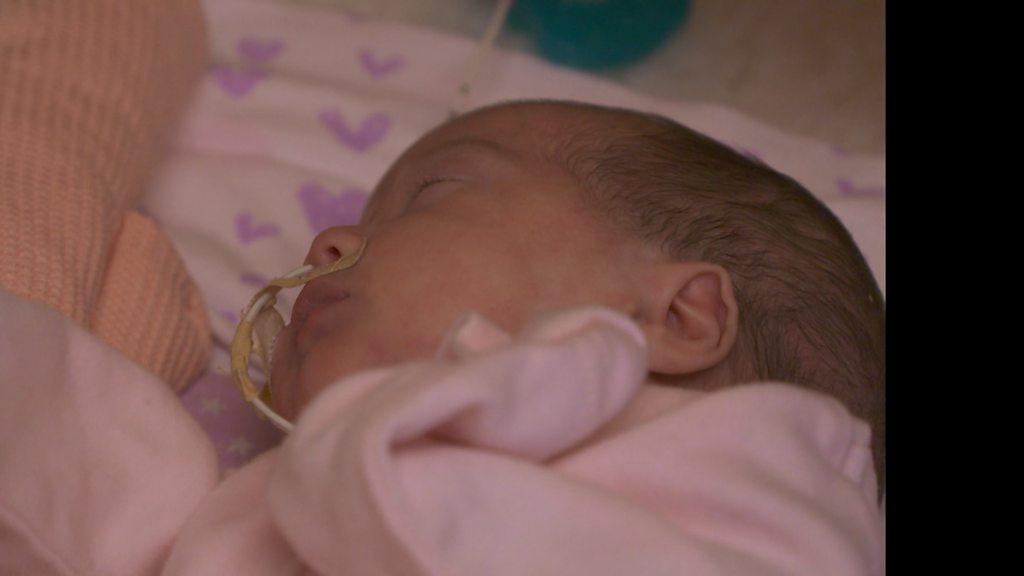
- Published22 February 2019
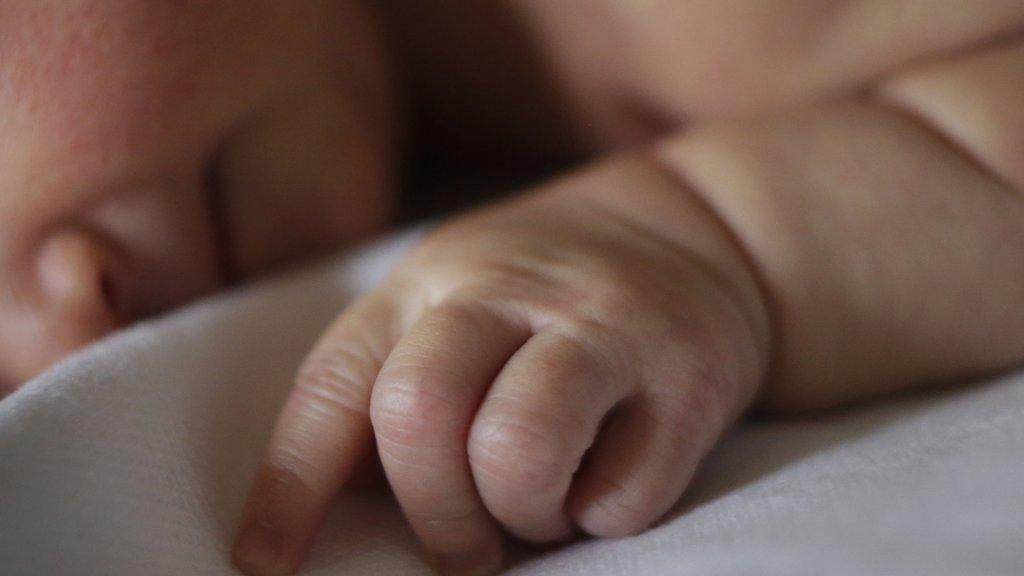
- Published20 August 2018
